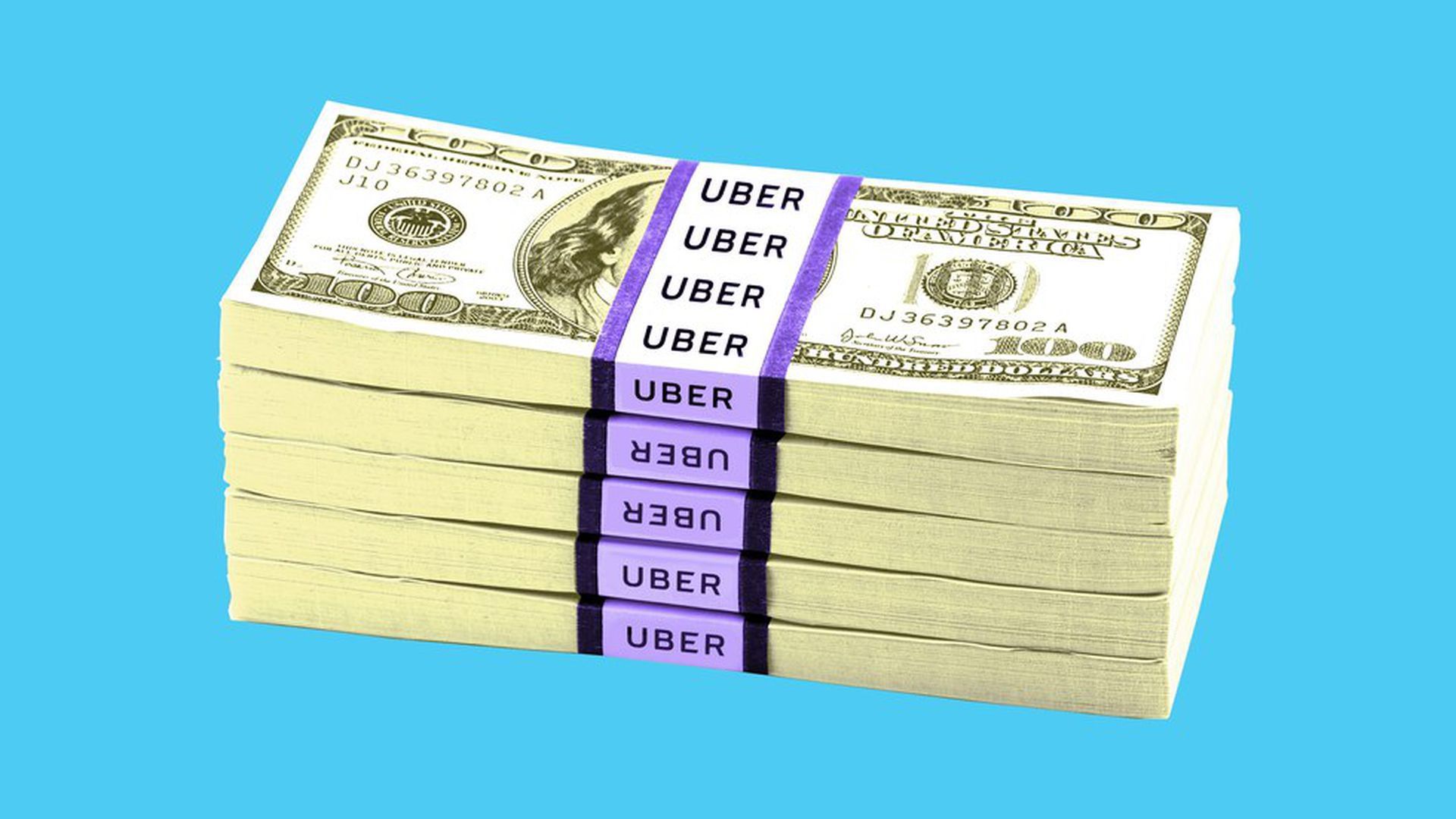| | | | | | | | | | | Axios Markets | | By Emily Peck and Matt Phillips · Jul 18, 2022 | | 👋 Welcome back. What a weekend! Ben and Jen finally tied the knot, after all these years. But you're not here for the hot celeb gossip. We have something better — real talk about inflation and economic research and bonds. Let's go. Today's newsletter, edited by Kate Marino, is 1,162 words, 4.5 minutes. | | | | | | 1 big thing: A recession would be worse than this |  | | | Illustration: Sarah Grillo/Axios | | | | A recession would be worse than the inflation the U.S. is seeing now, which is actually showing signs of easing up, some progressive economists are now arguing, Emily writes. Why it matters: The Federal Reserve has been hiking interest rates to tamp down inflation, and is expected to continue — but this runs the risk of triggering a downturn. And at this point, that "cure" might be worse than the illness Dr. Powell is treating. - "The data is saying we have time to be flexible," says Josh Bivens, who makes this point in a new column from the Economic Policy Institute.
Details: The high rate of inflation the government reported for June freaked a lot of people out, but energy prices mostly drove the surge. This month, gas prices have fallen at their fastest rate since the pandemic. - Other commodity prices are down, too. Lumber, a leading indicator of the pandemic inflation, is well off its recent highs.
- Meanwhile, inflation expectations are receding, as Axios Macro reported last week.
"There are a lot of reasons for believing that inflation has peaked," Dean Baker, senior economist at the progressive Center for Economic and Policy Research, tells Axios. The big picture: With inflation, there are actually winners and losers. "One person's cost is another person's income," Bivens notes, pointing to record oil company profits, for example. - Rents and home prices go up; landlords and home sellers benefit.
- Bivens — who is typically on the side of labor, not capital — doesn't applaud this kind of redistribution of wealth, he adds. But a recession "would have worse distributional consequences."
With a recession, everyone loses — not just the unemployed. Even if you hang on to your job, raises vanish, advancement opportunities narrow or disappear. "The economy overall is poorer," Bivens says. - Young adults starting their careers would have fewer job options, too.
This is especially significant, considering how the recent economic expansion has benefited those at the bottom of the ladder. The lower-paying jobs that have improved in quality recently would worsen significantly, as employers took back the upper hand. - And, typically in a recession, the first to lose jobs are lower-income or less-educated folks, or those with criminal backgrounds, Baker emphasized.
- Yes, higher prices also hurt those people — but unemployment isn't going to make that better.
The other side: Some note that recessions can be short, while longer-term, structural inflation can eat away at affordability for years. What to watch: All eyes are on the Fed meeting next week when it is expected to announce another rate increase of at least 0.75 percentage points. |     | | | | | | 2. Catch up quick | | 📈 Fed signals 0.75 percentage-point rate hike later this month. (WSJ) 🌎 A host of central banks are hiking rates aggressively, setting up a sharp pullback in global economic activity. (NYT) |     | | | | | | 3. Uber's pay for play |  | | | Illustration: Lazaro Gamio/Axios | | | | Should bought-and-paid-for corporate white papers get published under the auspices of the venerable National Bureau of Economic Research? That's the question raised by new disclosures from the Uber files leak, Axios' Felix Salmon writes. State of play: A major NBER research paper c0-authored by Alan Krueger, the former chair of the White House Council of Economic Advisers, was revealed last week to have been paid for by Uber as "part of a production line of political ammunition that could be fed to politicians and the media," in the words of Guardian investigative reporter Felicity Lawrence. Context: NBER, more than a century old, is one of the most venerable economic institutions in the world. It's funded mostly by U.S. government agencies, but also by a broad range of corporations and foundations. There is no more prestigious venue in which to publish economic research. By the numbers: Uber paid Krueger $100,000 for the controversial 2016 study, which has been cited by 981 scholarly articles to date. A payment of that magnitude "is not trivial and is relevant," one high-profile economist tells Axios. - The payment, to an economist who was broadly beloved within the profession, has been described as troubling and distressing by academics on Twitter.
For the record: In a statement to Axios, NBER spokesperson Charlie Radin said that "the NBER's research disclosure policy requires all of the authors on any working paper disseminated by the NBER to disclose any financial interests that bear on the paper's content." - That disclosure, in full: "Krueger acknowledges working as a consultant to Uber in December 2014 and January 2015 when the initial draft of this paper was written."
Flashback: The 2011 documentary "Inside Job" famously grilled former Fed board member Ric Mishkin on a 2006 study he wrote entitled "Financial Stability in Iceland," for which he was paid $124,000. - More recently, the Revolving Door Project has urged much more transparency about where another former White House economist, Larry Summers, makes his money.
The bottom line: It is commonplace for companies to pay economists to write research that then gets published by the company itself. When the research appears in academic outlets, however, the current disclosure regime can feel insufficient. |     | | | | | | A message from Axios | | Get a free preview of Axios Pro | | |  | | | | Discover how Axios Pro empowers thousands of professionals every day with deeper reporting, granular analysis, exclusive scoops and more. - We'll get you smarter, faster on the deals, trends and companies transforming your industry.
Get your free preview today. | | | | | | 4. High-grade indigestion |  Source: ICE Data Services; Chart: Axios Visuals The investment grade corporate bond market usually gives off safe and boring vibes. This year, not so much, Axios' Kate Marino writes. Why it matters: The trillions-deep market is where the biggest and most creditworthy U.S. companies borrow money. But just like in the mortgage market, where extreme rate volatility is wreaking havoc on both borrowers and lenders, things have gotten chaotic under the hood of the investment grade market. - Average total returns on IG bonds (also known as high-grade bonds) were negative 14% over the first half of the year, one of their biggest losses in history, according to a BofA research note.
- New issuance in this market plunged in Q2 by 42% compared to Q1, and by 27% from the second quarter of last year, according to Leveraged Commentary & Data.
State of play: Generally, as benchmark Treasuries go, so do yields on high-grade corporates. - ICE Data Services' MOVE Index, which tracks Treasury volatility sort of like a VIX for the bond market, has shot up this year to levels nearing their early pandemic highs (see the chart above).
So for investors who trade high-grade bonds, it's gotten a lot more difficult out there. - Bid/ask spreads — the gap between buyer and seller price demands — have widened dramatically.
- Crucially, the dealers that usually step in to bridge that gap — by committing capital to hold some of the bonds temporarily — aren't willing to hold nearly as much inventory as they used to. That's exacerbating price swings, Matt Brill, head of North America investment grade for Invesco Fixed Income, tells Axios.
What they're saying: Dealers "are finding it very hard to source the paper that their clients want to buy," says Josh Lohmeier, investment grade portfolio manager at Franklin Templeton. - "And they're simultaneously finding it very hard to find a home for the bonds that their clients want to sell. The indigestion of not being able to get anything done is very hard right now," he says.
Read the full story. |     | | | | | | A message from Axios | | Get a free preview of Axios Pro | | |  | | | | Discover how Axios Pro empowers thousands of professionals every day with deeper reporting, granular analysis, exclusive scoops and more. - We'll get you smarter, faster on the deals, trends and companies transforming your industry.
Get your free preview today. | | |  | | Why stop here? Let's go Pro. | | | | | | Axios thanks our partners for supporting our newsletters. If you're interested in advertising, learn more here.
Sponsorship has no influence on editorial content. Axios, 3100 Clarendon Blvd, Arlington VA 22201 | | | You received this email because you signed up for newsletters from Axios.
Change your preferences or unsubscribe here. | | | Was this email forwarded to you?
Sign up now to get Axios in your inbox. | | | | Follow Axios on social media:    | | | | | |
Post a Comment
0Comments